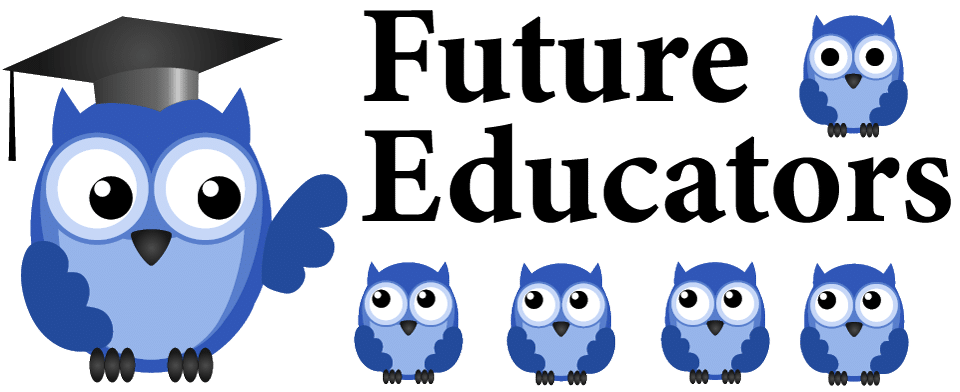Position yourself for job success with a career development plan. In just 5 steps, you can create a plan that will help define your career goals and put in measures to achieve them.
A clear roadmap will help you make informed decisions and stay focused on your future. Career action plans are used by many people, from high school students through to working professionals.
This guide will show you how to develop your plan, explain why it’s useful, and provide templates and examples to get you started. With regular updates and adjustments, your career plan will keep you on track to achieve your ambitions.
What is a Career Development Plan?
A career development plan is a document that defines your career goals and has steps to achieve them. You can create your own plan using a template and by doing some research and thinking.
Your plan may also be called a Career Action Plan or a Professional Development Plan. While these plans were once mainly used by human resources to guide employees, more people now create their own to actively manage their career growth.
Typically, the plan includes an assessment of your current career situation, your goals, and the steps you need to take to move forward. A clear, actionable plan can help you stay focused and make steady progress toward achieving your career aspirations.
5 Steps to Create Your Plan
To create a career development plan, you complete sections in your planning document. A good approach is to start with high-level goals and work down towards more specific actions. Here are five steps to write a plan.
1. Identify your interests
Start by thinking about what you enjoy doing and what you’re good at. Reflect on your hobbies, school subjects, and any work or volunteer experiences that have sparked your interest. This helps you choose a career path that aligns with your strengths and passions.
2. Set career goals
Once you know your interests, decide what you want to achieve. These can be long-term goals, such as pursuing a particular career, and short-term goals, like improving certain skills. Be clear about where you want to go and what steps you can take to get there.
3. Assess your skills
Take a look at the skills you already have and those you need to develop. For example, if you’re interested in a technical field, you might need to learn coding or improve your maths skills. Identifying these gaps helps you focus on areas for growth.
4. Research opportunities
Find out what opportunities are available to help you achieve your goals. This might include courses, internships, or part-time jobs. For students, looking into extracurricular activities or work experience can be valuable for gaining skills and knowledge.
5. Create an action plan
Put everything together in a detailed action plan. List the steps you need to take, set deadlines, and decide how you’ll track your progress. This gives you a clear path to follow and helps you stay focused on your goals.
Career Development Plan Template (Free)
Download this free template to document your career action plan.
Career development plans are flexible, and you are free to change, add, or subtract any elements. Here are suggestions for elements to have depending on your stage of education and training.
(a) High school student
- Career goals
Identify subjects and activities that align with potential career fields. - Current skills and strengths
Assess academic performance and extracurricular abilities. - Goals
Set short-term goals related to skill development or improving grades. - Growth opportunities
Look for extracurricular activities, volunteer work, or part-time jobs to gain experience. - Future education and career options
Explore post-high school plans, such as university, vocational training, or internships.
Related: Best Personality Test for High School Students
(b) College student
- Career goals
Define career paths based on your major and personal interests. - Current skills and achievements
Evaluate academic success, internships, and projects completed so far. - Short-term goals
Focus on internships, networking, or gaining specific skills during your studies. - Growth opportunities
Engage in extracurriculars, part-time jobs, or volunteer work to build experience. - Post-graduation plans
Research job markets, graduate programs, or certifications that align with your career goals.
Related: Postgraduate Futures, Career Action Plan for Students
(c) College graduate
- Career goals
Pinpoint specific industries and roles you aim to pursue. - Skills assessment
Evaluate the skills gained from your degree and how they transfer to the job market. - Job search strategy
Set targets for job applications, networking, and potential career fields. - Professional development
Look into certifications, online courses, or workshops to enhance your qualifications. - Long-term career vision
Consider career growth opportunities like promotions, leadership roles, or further education.
(d) Employed professional
- Current career status
Reflect on your current role and where you want to advance within your profession. - Skills and performance evaluation
Assess your performance and identify areas for skill improvement. - Career goals
Set objectives for promotions, role changes, or new projects. - Growth opportunities
Seek training, mentorship, or leadership programs to support career progression. - Long-term career strategy
Map out a clear vision for long-term goals, such as industry recognition or executive roles.
Examples
Here are sample career action plans for four individuals. These highlights give you ideas for what to include in your plan.
Liam: high school student (English and History)
Liam excels in English and U.S. History. He plans to study Journalism or Political Science, with electives in Media Studies and Economics. He’s exploring university programs that combine storytelling and politics. Liam will look for internships at local news outlets and political campaigns.
Ava: 1st-year Computer Science major
Ava is considering majors in AI, software engineering, and data science. She plans to focus on coding and algorithms next year. Ava attends coding meetups and hackathons to network and learn about industry trends.
Emma: Public Health graduate student
Emma, with a Biology degree, is pursuing an MPH and volunteering at local health clinics. She’s taking extra courses in epidemiology and health policy. Emma connects with professionals through LinkedIn and public health conferences to explore government job options.
Ethan: Marketing professional
Ethan, with 5 years in marketing, aims for a senior role. He’s working on an MBA and certifications in Google Ads and HubSpot Marketing. Ethan networks at industry events and mentors junior colleagues to build leadership skills.
Why Career Planning is Important
The purpose of a career development plan is to provide an actionable roadmap for your career. It is important for making well-informed decisions that lead to good future outcomes.
(a) Increase self-awareness
Creating a career development plan helps you assess your current situation. By reflecting on your strengths, weaknesses, and where you want to grow, you gain a clearer understanding of where you stand and what you need to work on.
(b) Encourage personal growth
A career development plan pushes you to continually improve. As you set and achieve goals, you steadily build new skills and expand your capabilities.
(c) Stay motivated and focused
Having a plan keeps you engaged. By tracking your progress and hitting milestones, you stay committed to your career and feel a sense of achievement.
(d) Boost performance
For professionals, following a career plan can drive better results. It gives you a clear path, helping you stay focused on meeting objectives and improving performance over time.
How to Implement Your Plan

Once you’ve created your career development plan, don’t let it gather dust. Keep thinking about your future, and use your plan as a guide. Refer back to it and update it as your situation changes.
Research and explore new options in your field. Stay aware of trends, network, and learn about different paths that might interest you. Keep evaluating your skills and adjust your plan as needed. Your career goals may shift, and that’s okay. The key is to remain flexible and open to change.
Make it a habit to review your plan. Whether it’s monthly or quarterly, check in to see if you’re making progress and move towards goals. If you’re working, consider discussing your plan with your manager during performance reviews.
